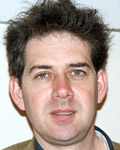“With the flurry of foreign news at the moment, you will be forgiven for missing the statement of Presidents Medvedev, Obama and Sarkozy from the G8 summit Deauville on the Nagorny Karabakh conflict. But it is the most serious international declaration on the conflict for many years,” writes De Waal and adds that the announcement made by the OSCE co-chairmen on May 26 clearly shows that time for the truth is close. “At Kazan in late June, President Dmitry Medvedev, backed by the French and U.S. mediators, will make a strong push to have Presidents Aliev and Sarkisian finally cut a deal on the Document on Basic Principles that they have been discussing for more than five years now,” writes the expert. He wrote the key points of the main principles, according to which the Armenian forces will slowly move from the territories around Karabakh, Nagorno Karabakh will be given an interim status, which will give international legitimacy to it, but not full independence. In addition, Karabakh will be given promise to organize a referendum in the future “with the power of law” for the purpose of defining the final status. “But here come the doubts. Despite intense talks in private, in public the leaders still voice maximalist positions and call on their adversary to surrender. The rhetoric is especially brutal on the Azerbaijani side. The day after the Deauville declaration, Azerbaijani deputy prime minister Ali Hasanov called the Armenian president a “criminal” and his government a “fascist regime” which needs to be “overthrown.” So it comes down to political will. Are the Armenian and Azerbaijani leaders merely using the endlessly elusive Karabakh peace process as a device to keep the international community sweet and to demand loyalty from their populations, while never seriously wishing to sign a peace? Or are they genuinely committed to a peace agreement which would begin the long-term transformation of their region, but trapped by their own national discourse and political rhetoric and afraid to move forward? Or a bit of both? This is why I welcome the line in the Deauville document which says, “Further delay would only call into question the commitment of the sides to reach an agreement.” Or to put it another way, “We now have a workable document. Prove to us you are serious and sign it,” writes De Waal. According to the expert, this is also about the will of the international community. “It is a matter of international will too. Foreign powers have to be serious as well. Absent strong domestic support for peace, it is internationals who will have to stiffen the resolve of the presidents and shape a new discourse of compromise. They will have to make a commitment to a reconstruction and peacekeeping operation. Russia, the United States and the EU have worked well together in the negotiation process, but, given all their diverse interests in the Caucasus, their bilateral agendas with both countries and all the competing claims on their resources, it will be tough to construct a joint post-conflict settlement for Karabakh. This will be especially important if the framework plan is agreed and there comes the inevitable hiatus between an initial agreement and progress on the ground. The spoilers will rush in to try to destroy it. Remember Oslo and the Middle East. So, as the Kazan meeting approaches, the stakes are raised for both peace and war in the Caucasus,” mentioned Thomas De Waal.

